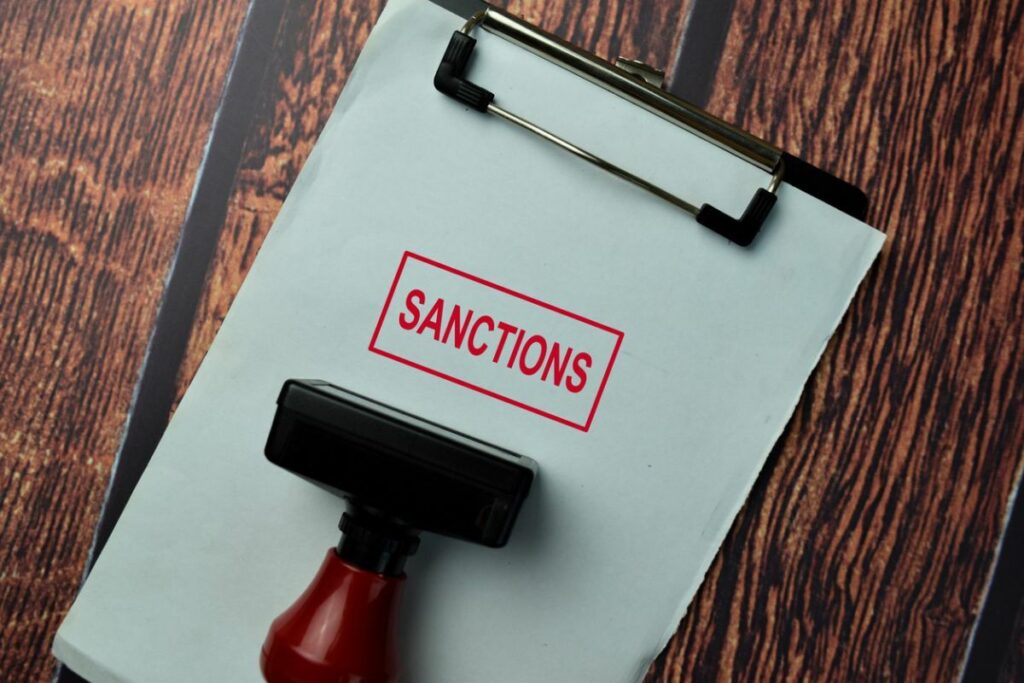Texas professional licensing boards and agencies have wide discretion in determining sanctions for violating the laws and rules governing professionals. While some professions have advisory guidelines or recommended sanctions for various types of misconduct, a licensing board generally has the ultimate authority to decide the outcome of a disciplinary case. In making that determination, professional licensing boards often consider aggravating and mitigating factors.
Having an experienced Texas licensing board defense attorney on your side can present mitigating circumstances on your behalf and work to minimize or even eliminate the sanctions against you. As a result, if you are facing a disciplinary complaint, contacting an attorney from the outset of the proceedings is wise. Throughout your disciplinary case, we can explain your rights, defend your license, and work to lessen the impact of any sanctions on your life and career.
The Texas Medical Board: Aggravating and Mitigating Factors
Like many professional licensing agencies, the Texas Medical Board (TMB) has various laws and rules that affect the sanctions it imposes in disciplinary cases. 22 Tex. Admin. Code § 190.15(a) sets forth a list of aggravating factors that may warrant more severe or restrictive action by the TMB, as follows:
- harm to one or more patients;
- the severity of patient harm;
- one or more violations that involve more than one patient;
- economic harm to any individual or entity and the severity of such harm;
- increased potential for harm to the public;
- attempted concealment of the act constituting a violation;
- intentional, premeditated, knowing, or grossly negligent act constituting a violation;
- prior similar violations;
- previous disciplinary action by the board, any government agency, peer review organization, or health care entity;
- violation of a board order; and
- other relevant circumstances increasing the seriousness of the misconduct.
Likewise, the TMB can consider certain mitigating factors that may warrant less severe or restrictive sanctions in certain cases, as follows:
- self-reported and voluntary admissions of violation(s);
- implementation of remedial measures to correct or mitigate harm from the violation(s);
- acknowledgment of wrongdoing and willingness to cooperate with the board, as evidenced by the acceptance of an Agreed Order;
- rehabilitative potential;
- prior community service and present value to the community;
- participation in a continuing medical education course described in §166.2(a)(6) of this title (relating to Continuing Medical Education) completed not more than two years before the start of the investigation if the board is investigating the physician regarding the physician’s selection of clinical care for the treatment of tick-borne diseases;
- other relevant circumstances reducing the seriousness of the misconduct; and
- other relevant circumstances lessening responsibility for the misconduct.
The Texas State Board of Pharmacy: Aggravating and Mitigating Factors
Similarly, the Texas State Board of Pharmacy may consider various aggravating and mitigating factors under 22 Tex. Admin. Code § 281.62 in determining the appropriate sanctions against the professionals that it licenses and regulates in a disciplinary case. Aggravating factors that it may consider meriting an increase in the appropriate sanctions include the following:
- extent and gravity of personal, economic, or public damage or harm;
- vulnerability of the patient(s);
- willful or reckless conduct, or as a result of a knowingly made professional omission, as opposed to negligent conduct;
- pattern of misconduct that serves as a basis for discipline;
- prior disciplinary action(s);
- attempted concealment of the conduct, which serves as a basis for disciplinary action under the Act; and
- violation of a board order.
The Board also can consider some mitigating factors that may merit a decrease in the appropriate sanctions in a disciplinary case:
- isolated incident that serves as a basis for disciplinary action;
- remorse for conduct;
- interim implementation of remedial measures to correct or mitigate harm from the conduct, which serves as a basis for disciplinary action under the Act;
- remoteness of misconduct, when not based on delay attributable to actions by the respondent;
- extent to which the respondent cooperated with the board investigation;
- treatment and/or monitoring of an impairment;
- self-reported and voluntary admissions of the conduct which serves as a basis for disciplinary action under section 565.001(a)(4) and (7) of the Act; and
- if acting as pharmacist-in-charge, respondent did not personally engage, either directly or indirectly, in the conduct that serves as the basis for disciplinary action; did not permit or encourage, either by professional oversight or extreme negligence, the conduct that serves as the basis for disciplinary action; promptly reported the conduct to the board or other state or federal regulatory authorities or law enforcement upon identifying the conduct that serves as the basis for disciplinary action; and took all reasonable steps to mitigate or remediate the conduct that serves as the basis for disciplinary action.
Texas Behavioral Health Executive Council: Aggravating and Mitigating Factors
22 Tex. Admin. Code § 884.20(e) outlines various aggravating factors that the Texas Behavioral Health Executive Council may use to justify increasing the severity of sanctions for unprofessional conduct by the professionals it licenses and regulates. These aggravating factors include the following:
- Physical or emotional harm and the type and severity thereof;
- Economic harm to any individual or entity and the severity thereof;
- Increased potential for harm to the public;
- Attempted concealment of misconduct;
- Premeditated conduct;
- Intentional misconduct;
- Prior written warnings or written admonishments from any supervisor, governmental agency, or official regarding statutes or regulations about the licensee’s practice;
- Prior misconduct of a similar or related nature;
- Disciplinary history;
- Likelihood of future misconduct of a similar nature;
- Violation of a Council order;
- Failure to implement remedial measures to correct or alleviate harm arising from the misconduct;
- Lack of rehabilitative effort or potential; and
- Improper or inappropriate motive.
- 884.20(f) provides various mitigating factors that the Council may use to justify a reduced sanction in the case of unprofessional conduct. Mitigating factors include the following:
|
Click to contact our professional license defense lawyers today
Count on Bertolino LLP to Defend Your License Throughout Your Disciplinary Proceedings
Facing an investigation, disciplinary proceedings, and potential sanctions from your professional licensing board can be a difficult and stressful experience. Severe sanctions in disciplinary proceedings can threaten your ability to support yourself and continue working in your chosen field. As a result, you need the guidance that only an experienced Texas license defense lawyer can offer you. Contact us today by calling the offices of Bertolino LLP at (512) 515-9518 or visiting us online.
Call or text (512) 476-5757 or complete a Case Evaluation form






